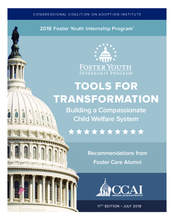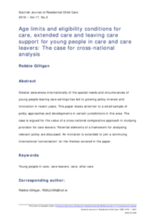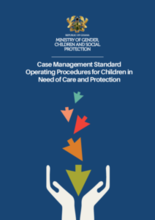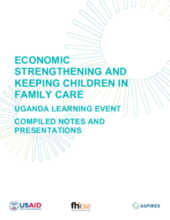Displaying 611 - 620 of 991
This video shares the views of the Croatian partner's trainers, young people and care professionals involved in the "Prepare for Leaving Care" project training for care professionals.
This study examined educational attainment and earnings among former foster youth in early adulthood.
CCAI’s Foster Youth Internship Program® is a highly esteemed congressional internship for young adults who spent their formative years in the U.S. foster care system. In this annual policy report, the interns focus on subjects they are personally passionate about due to their experiences and understanding after living in foster care and make personal recommendations for improving the U.S. foster care system.
This study examines how a child welfare agency implemented an innovative pilot initiative designed to promote timely family reunification.
The aim of this chapter is to explore how caregiving arrangements among parents of the recent East European labour migrants in Sweden develop in a transnational setting.
This paper draws attention to a small sample of policy approaches and developments in certain jurisdictions in this area of young people leaving care settings.
En este documento se presentan los principales resultados de una investigación se propuso conocer las dinámicas y trayectorias de transición del sistema de cuidados alternativos a la autonomía de los y las jóvenes que vivieron en instituciones de cuidado residencial de la Ciudad de Buenos Aires, Argentina.
These Standard Operating Procedures (SOPs) describe guiding principles, procedures, roles and responsibilities in the prevention of and response to child protection for children residing within Ghana.
This report compiles presentations and notes from the Accelerating Strategies for Practical Innovation & Research in Economic Strengthening (ASPIRES) Family Care Uganda Learning Event, Economic Strengthening and Keeping Children in Family Care, held May 29-30, 2018.
The investigators specifically queried the phenomenon of seeking healthcare services after foster care drawing from the Phenomenology of Practice approach.





